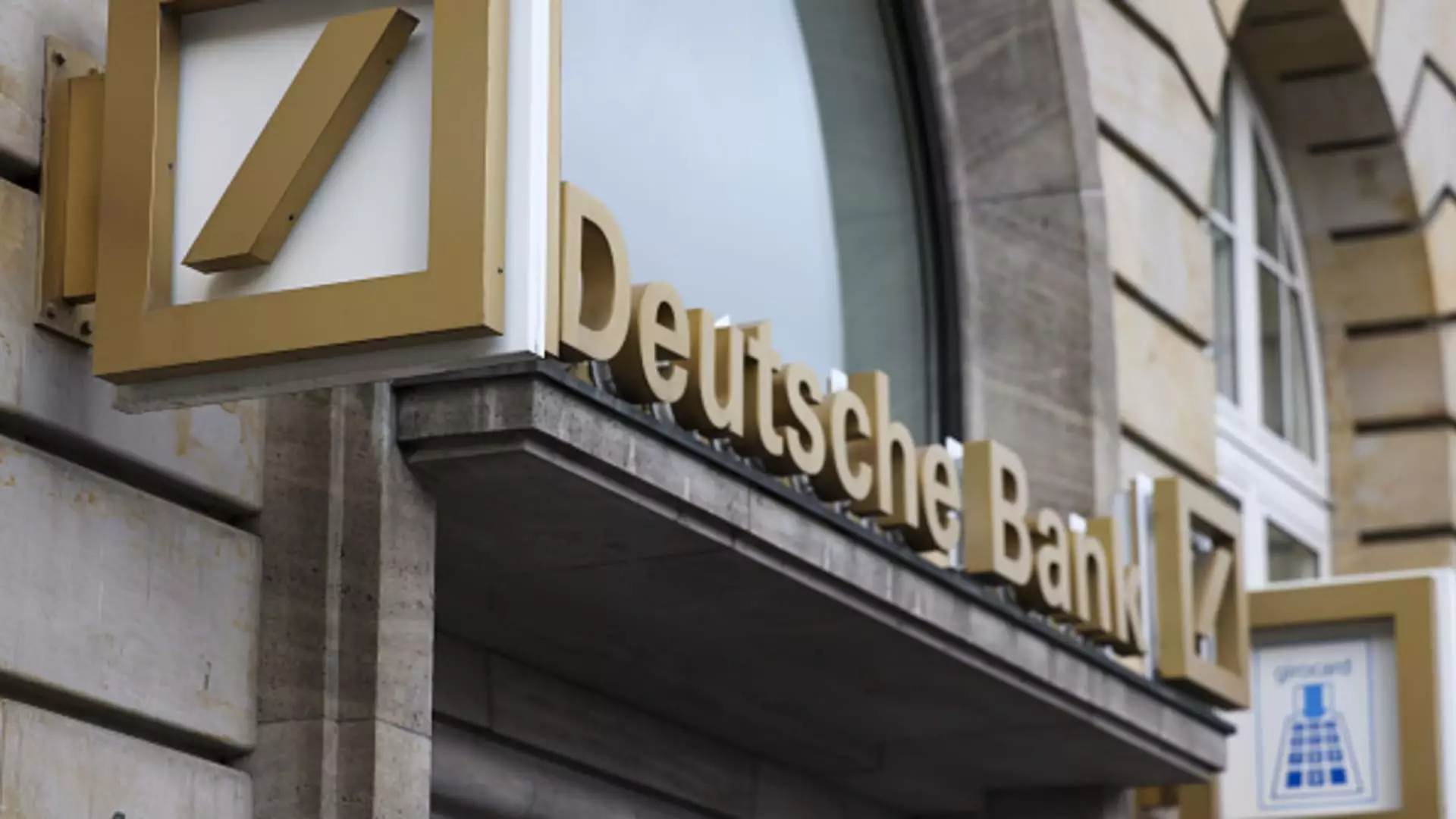In an impressive turnaround, Deutsche Bank has successfully returned to profitability in the third quarter of this year, defying expectations and signaling a potential shift in momentum for Germany’s largest lender. After experiencing a tumultuous second quarter that resulted in a €143 million loss, the bank reported a net profit of €1.461 billion (approximately $1.58 billion) for the three-month period ending in September. This figure exceeded analysts’ predictions of €1.047 billion, highlighting the bank’s advancements in navigating financial obstacles.
The bank’s revenue of €7.5 billion also surpassed the projected €7.338 billion, indicating robust performance across various sectors. The significant rise in profit before tax, recorded at €2.26 billion—a 31% increase year-on-year—demonstrates Deutsche Bank’s recovery strategy is effectively taking root. This positive trajectory can be attributed in part to the partial relaxation of litigation provisions, specifically a €440 million release related to ongoing lawsuits stemming from the acquisition of the Postbank division.
Despite the encouraging profits, Deutsche Bank remains vigilant about ongoing challenges within the financial landscape. The provision for credit losses jumped to €494 million, up from €245 million during the same quarter last year, emphasizing the bank’s proactive approach to preparing for potential credit risks. The Common Equity Tier 1 (CET1) capital ratio reached 13.8%, slightly increasing from 13.5% in the preceding quarter, reinforcing a measure of bank solvency that is critical for investor confidence.
The return on tangible equity (RoTE) stood at 10.2%, exhibiting significant improvement over last year’s 7.3%. However, this still falls short of the targets Deutsche Bank seeks to achieve, especially when factoring in adjustments for litigation provisions—emphasizing the imperative need for continued cost efficiency within the bank’s operations.
CEO Christian Sewing expressed confidence in the bank’s trajectory, committing to ongoing strategies aimed at profitable growth and amplified returns for shareholders. The company’s recent application for a share buyback program, previously stalled due to legal entanglements, signals a strategic shift towards rewarding investors. Deutsche Bank’s asset management segment also showed promise, generating net revenues of €660 million—an 11% increase compared to last year, reflecting strong demand for their investment strategies.
As challenges loom on the horizon, particularly with the European Central Bank’s transition to looser monetary policies, Deutsche Bank must surpass current hurdles while remaining attentive to the competitive landscape. Analysts from McKinsey underscored a critical juncture for European banks, suggesting that maintaining return on tangible equity margins will necessitate significant cost reductions amid declining revenue growth.
Industry participants are closely watching the broader banking sector as Deutsche Bank distances itself from speculation regarding a merger with rival Commerzbank. With Commerzbank now potentially in discussions with Italy’s UniCredit, Deutsche Bank stands at a crossroads, poised to leverage its renewed profitability against the backdrop of shifting market dynamics.
With major European financial institutions such as Barclays and UBS preparing to announce their third-quarter results shortly, the focus remains on how Deutsche Bank’s recent performance may signal trends for the industry. The challenge of balancing cost-control initiatives against profit expectations remains pertinent as banks aim to enhance their return on equity while competing with their U.S. counterparts—a task that may define the profitability landscape in the forthcoming quarters.
Deutsche Bank’s strong performance in the third quarter illustrates resilience amidst prior difficulties. As the bank embarks on its journey toward a more profitable horizon, it becomes increasingly vital for the institution to capitalize on current momentum while addressing the ongoing fiscal challenges that lay ahead. The strategic repositioning and increased focus on efficiency could likely result in a more vibrant future for Deutsche Bank in the competitive banking sector.


Leave a Reply